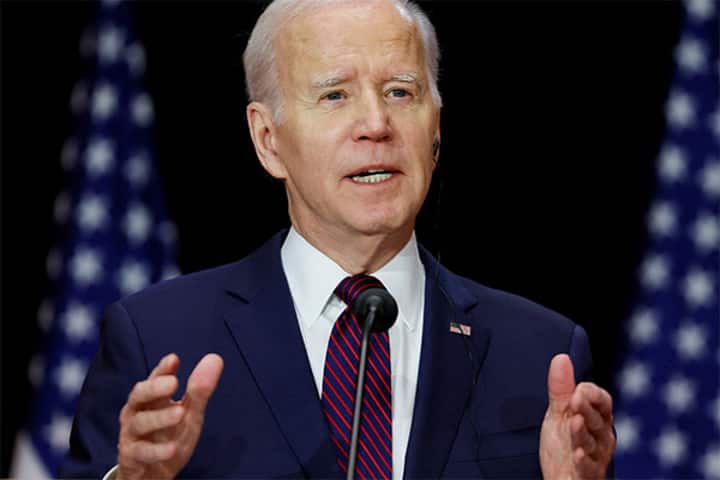United States National Security Adviser Jake Sullivan on Friday announced that the US will send cluster munitions to Ukraine as part of a new military aid package, reported CNN.
The announcement came following months of debate within the Biden government about whether to provide Ukraine with the controversial weapons banned by over 100 countries including key US allies. “I’m not going to stand up here and say it is easy,” Sullivan told reporters, adding, “It’s a difficult decision. It’s a decision we deferred. It’s a decision that required a real hard look at the potential harm to civilians. And when we put all of that together, there was a unanimous recommendation from the national security team, and President Biden ultimately decided, in consultation with allies and partners and in consultation with members of Congress, to move forward on this strategy.”
President Joe Biden approved the transfer of ammunition this week, as reported by officials to CNN.
As Ukrainian forces have been unable to make significant progress in their counteroffensive against Russia, CNN first reported last week that the administration was seriously considering the action.
The munitions are compatible with the 155 mm howitzers that the US is providing, a crucial piece of artillery that has helped Ukraine retake territory over the past year.
Similar to landmines, cluster munitions disperse “bomblets” over wide areas and have the potential to fail to detonate upon impact, posing a long-term risk to anyone who comes into contact with them. The US and Ukraine have not ratified the Convention on Cluster Munitions, which has been outlawed by more than 100 nations, including the UK, France, and Germany.
The provision of the weapons to Ukraine is “not an option” for Berlin because it is a signatory to the agreement, said German Defence Minister Boris Pistorius on Friday. He did not, however, offer his opinion on the US government’s choice, saying, “Those countries that have not signed the convention – China, Russia, Ukraine and the US – it is not up to me to comment on their actions.”
The munitions the US is expected to deliver may have a dud rate of up to 2.35 per cent, according to Pentagon Press Secretary Brig Gen Patrick Ryder. Biden would disregard legislative limitations placed by Congress on exporting weapons with a greater than one per cent “dud” rate, Ryder said on Thursday, as per CNN.
A higher dud rate indicates that more of the small bomblets scattered by cluster munitions do not detonate upon impact, posing a risk to nearby bystanders. According to Ryder, the Russians have been employing cluster munitions, which can have a 40 per cent failure rate.
Since last year, Ukrainian officials have pushed the US to deliver the munitions, claiming that they would increase the ammo for the artillery and rocket systems that the West has provided and assist reduce Russia’s numerical advantage in artillery.
Given how many nations around the world have outlawed the weapons, insiders told CNN that Biden was first reluctant.
However, the Pentagon advised Biden that the munitions be provided to Ukraine at least on a temporary basis until non-cluster ammunition is able to be resupplied, officials said. This was because of the changing battlefield conditions inside Ukraine over the last three weeks, which prompted US officials to give them renewed and serious consideration.
If the counteroffensive carries on, officials and military analysts said it’s unclear whether the large amount of artillery ammunition that the Ukrainians have been using daily could be sustained without the cluster explosives. In the end, Biden agreed with their analysis.
Boris Gryzlov, the Russian ambassador to Belarus, described the US action as “a move of desperation.”
“As part of the continued assistance to the Kyiv regime, Washington is considering the possibility of sending cluster munitions to Ukraine. There has been talk about it since spring,” Gryzlov told Russian state news agency TASS on Friday.
“Now, the ‘hawks’ in the West have realized that the much-advertised counter-offensive of the Ukrainian armed forces did not go according to plan, so they are trying at all costs to give at least some impetus to it. In fact, it is a move of desperation,” Gryzlov added, reported CNN.




















